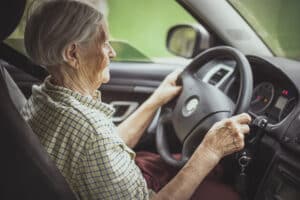
The ability to drive may become more difficult for loved ones as they get older, and the move from the independence that comes with driving to the necessity of relying on alternative modes of transportation can be a substantial adjustment in life experiences. Not only does this change have an effect on the mobility of seniors, but it also necessitates careful consideration and assistance from family and friends, as well as the incorporation of companion care at home. The purpose of this blog is to highlight the difficulties that seniors have when they are required to hand over their keys, as well as the tactics and resources that can assist them in making a smooth transition to alternate modes of transportation.
Understanding Obstacles
Each situation is different, but one thing remains the same: with the support of companion care at home and loved ones, seniors can continue to thrive and feel valued. When exploring obstacles that may arise during this transition, a few of the common ones are detailed below:
- Loss of Independence: When it comes to making the shift from driving to not driving, one of the most significant problems that seniors encounter is the perception of losing their independence. It is emotionally taxing to make the transition from being a driver to being dependent on other people for transportation because driving has long been linked with freedom and autonomy.
- No Experience or No Access to Public Transportation: The process of navigating public transportation is something that a lot of seniors might not be familiar with. Public transportation alternatives can include buses, trains, and specialty services that are designed specifically for older citizens. However, the process of gaining an understanding of the routes, schedules, and payment methods can be overwhelming, which might result in unease around the utilization of these services.
Not to mention, there are many areas where there is no access to public transportation. Between the lack of access and anxiety that might arise from using these alternative modes of transportation, it becomes clear how essential companion care at home is for seniors’ daily lives.
Helping Seniors Make the Transition
Understanding the obstacles, there are a few tips and tricks that loved ones and companion care at home aides can do to assist with the transition.
- Open Communication: It is important to encourage conversations that are open and honest about the difficulties that come with giving up driving. Pay attention to their worries and reservations, and collaborate with them to come up with workable answers.
- Make Modifications Gradually: Instead of making a sudden change, the support team should think about making modifications gradually. This will give seniors the opportunity to become more accustomed to the shift over time.
- Help with Technology: Even with companion care at home assisting with transportation, it’s still important for seniors to understand what other options they have. The support team can educate seniors about the various technological advancements that can improve their experience with transportation. Through the use of smartphone applications, they can have the ability to independently navigate various transportation alternatives, including ridesharing services, public transportation schedules, and trip planning tools.
The process of assisting seniors in making the shift from driving to accessing alternative modes of transportation is a complex one that calls for patience, understanding, and a collaborative approach. It is a journey that, if they are provided with the appropriate support from companion care at home, can lead to a chapter in their life that is both autonomous and fulfilling.
Sources:
https://www.healthinaging.org/tools-and-tips/tip-sheet-becoming-non-driver-find-alternate-transportation-options
https://www.nadtc.org/about/transportation-aging-disability/unique-issues-related-to-older-adults-and-transportation/
https://www.aarp.org/caregiving/home-care/info-2020/transportation-services.html
If you are considering companion care at home in Houston, TX for an aging loved one, please call the caring staff at At Your Side Home Care. We will answer all of your senior care questions. Call today: (832) 271-1600.
At Your Side Home Care, provides exceptional home care for seniors and families in Houston, West Houston, Katy, Memorial, The Heights, Spring Valley, Garden Oaks, Hunters Creek, River Oaks, Hilshire Village, Galleria, Cinco Ranch, Spring Branch, Sugar Land, Missouri City, Richmond, Rosenburg, Piney Point, Bay City and surrounding areas.
Our Certified Nurse Aides, 24-Hour Live-in Assistants and Home Health Aides are available 24 hours a day, 365 days a year. We also provide the security and confidence of 24-hour Telephone Assistance, so fast, reliable help is always available when it's needed. To learn more about our homecare services see our homecare services page.
Different people need different levels of homecare. To meet the requirements of our clients, At Your Side Homecare maintains consistent staffing levels of caring professionals. Homecare service is available for as little as a few hours a week, or as many as 24 hours a day, seven days a week
- What Solutions Can Help Seniors with Mental Health Challenges? - April 18, 2025
- How Does Senior Home Care Help Make Aging in Place Possible? - April 11, 2025
- Best Balance Exercises for Seniors - April 4, 2025



